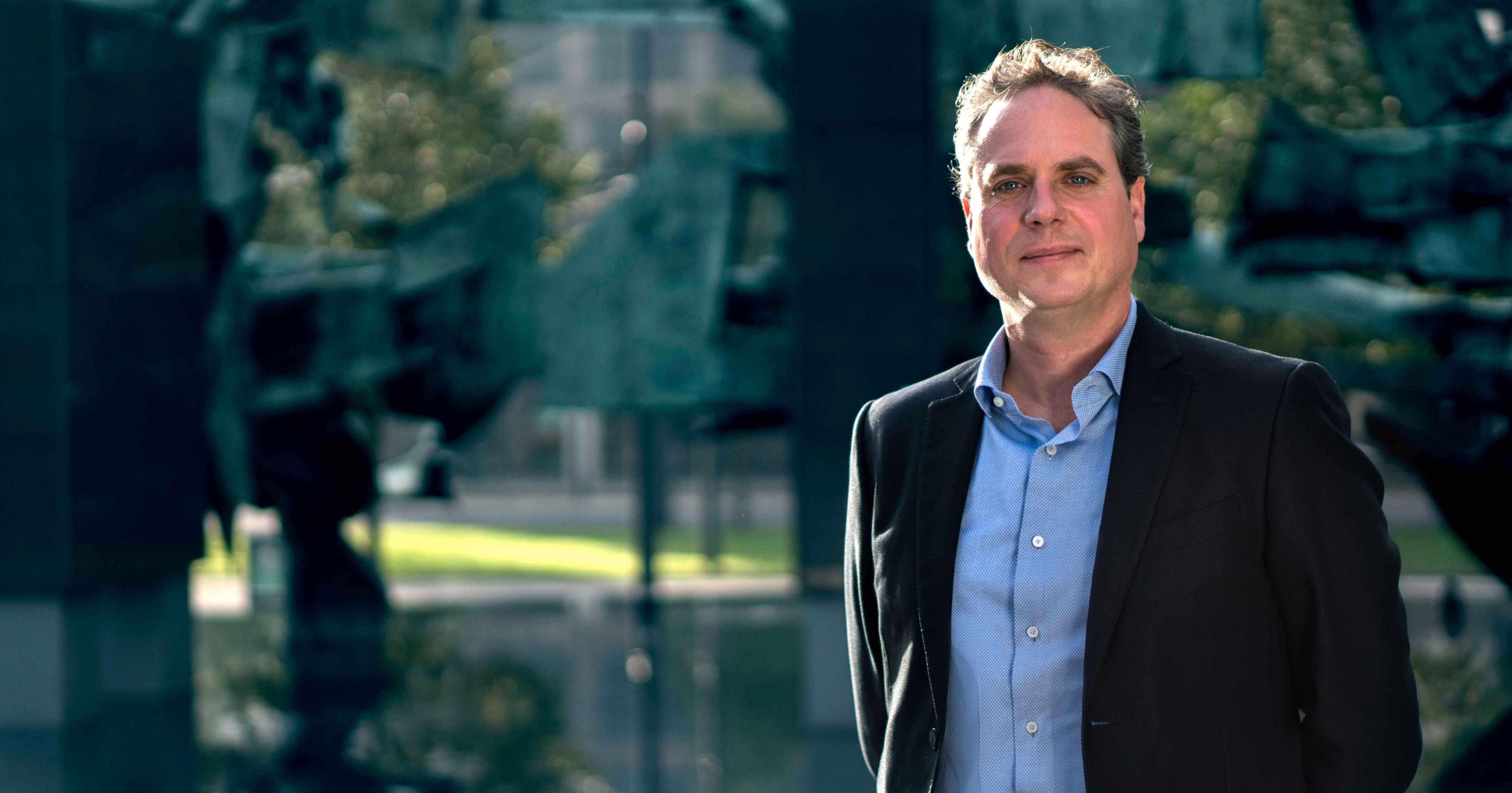Jille Tabak studied psychology at VU Amsterdam, lives in Wassenaar and works in Rotterdam and London. He is HR Vice President at Unilever’s Marketing, Communications & Sustainability Global Office
So what does a man with such an impressive job title do, exactly? “The full scope of human resources activities, ranging from leadership and career development and drawing up career profiles to looking for and recruiting talent, rewards, organisational change and culture programmes. These are just some of the things that I work on every day. Simply put: we help the organisation achieve its objectives thanks to its human capital, which includes making sure that the people responsible for supply chain move boxes in the right way, but also that the sales professionals know how to sell what’s in the boxes. I’m responsible for achieving the best possible results with the right people.”
Could we call you the team coach? “Sure, coach is a good word, because that’s definitely part of the job. Involved coaching, though, rather than just barking instructions from the sideline. There’s a coaching component to the work, but also an intervention component, which is very active. You try to make sure that teams perform and do the right thing, but to make that happen, they need a little assistance. Even the very best ask for help, because they see that there is always room for improvement. That’s where HR comes in: how do you get the best out of people? And how do you make them even better?”
“One of the principles of my HR philosophy is that what makes you unique is probably also what you’re best at. I often find that HR professionals focus on which areas you could improve upon, but, in essence, that’s a negative approach. Ideally, you want to develop your strengths. What makes you tick? What is your purpose? Developing that will bring out the best in yourself and help you perform to the best of your abilities.”
You work in Rotterdam and in London. Doesn’t travelling back and forth take its toll? “You have different priorities at different stages of your life. Work has always been very important to me: I’m very ambitious and my job is a great energiser for me. However, I’m just as ambitious a dad and husband. Travelling to London every week is quite challenging, because when I’m in London, I don’t get to experience family life, which keeps me from having the impact I want to have as a dad. Three days in London is as much as I can handle, after that, my energy levels just drop off a cliff. I’ve also noticed that my boys are always very happy when I return and that they never like it when I’m gone for too long. I usually spend two days in London, sometimes three. That’s what feels right. I’ve had to figure out how I could make this arrangement work, but I’m satisfied with the situation now.”
Did it take you a long time to find the right degree programme? “I spent five months studying law at VU University Amsterdam. After I failed Private Law for the third time, I realised that law wasn’t right for me. I had already been considering other options, because I hadn’t taken secondary school very seriously. I was passionate about law, but the whole thing was a kind of mathematics with words for me. So, I remember thinking to myself, what now? I started talking to student counselors, including those at the VU, until one of them asked me what I really loved doing. That’s how we ended up with psychology.
So the VU has played a major role in your life? “Certainly, and a very important role at that. Not only did I love the degree programme, but my fellow students were also a very good fit. I met one of my best friends here. I started studying psychology because I loved the field, but I didn’t have a clue about what I’d do later on in my career. How useful was all this knowledge for a job in business? I decided to take a few courses in economics as well, and ultimately, I chose to specialise in Occupational & Organisational psychology during my Master’s degree, which is when I realised how important insights from this field can be in business. I started atUnileveras an intern, after which I joined the company as an HR trainee and started to learn the tricks of the trade.”
What’s your next step? “Early on in my career, I was mainly focused on quickly achieving as much as I could, but now I’m mainly looking to make an impact. How can I help people be happier in their jobs? To me, that’s more important than a promotion now. There’s plenty of space for me to grow at Unilever, but it doesn’t feel at all like a ‘rat race’.”
“Lifelong learning is very appealing to me. Right now, I’m focusing on the business side of psychology, but in a few years’ time, I might take a whole new approach, by turning to clinical psychology, for instance, or developmental psychology with children. Those were two of the fields that appealed to me most when I was still a student. I love thinking about what opportunities the future will hold. Wouldn’t it be strange if you spent four years at university in your early twenties, picked a particular field and spent the rest of your life chained to that field? Fortunately, that’s now a thing of the past. For now, however, I’m right where I want to be at Unilever.”








